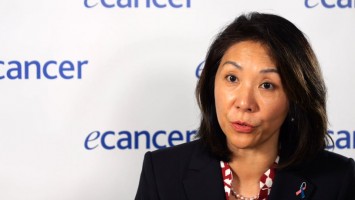The background is that we do not know what the best optimal treatment is for patients with high risk Burkitt lymphoma and Burkitt lymphoma is a very aggressive lymphoma. We know that we have to treat them immediately with high dose chemotherapy but there are different regimens and we don’t know what is the best. In 2013 there was a new regimen which is with lower intensity chemotherapy and we decided to develop a randomised study to compare these two regimens. That’s what we did in a phase III trial in HOVON in collaboration with the SAKK group in Switzerland.
What was the design of the study?
It was a randomised study so patients were randomised 1:1 to two cycles of R-CODOX-M/R-IVAC or six cycles of dose-adjusted EPOCH-R. The original plan was to demonstrate superiority for dose-adjusted EPOCH-R scheme. There was an increase from 70% to 85% of progression free survival, that was the primary endpoint, but due to slow accrual rates and the withdrawal of another group we had to close the trial earlier. So finally we included 89 patients and we randomised these into two groups.
What were the key findings?
The key finding is that the two regimens have the same survival rates regarding progression free survival but also overall survival; there was no significant difference. Another important finding is that the dose-adjusted EPOCH-R scheme is significantly less toxic regarding serious adverse events, infectious serious adverse events. It is also associated with less hospitalisation days and with less transfusions of red blood cells and of thrombocytes. So the dose-adjusted EPOCH-R scheme is the preferred scheme regarding these elements. You can do it on an outpatient basis and you need less transfusions and less hospitalisation days.
How could these results affect future treatment?
Since we closed the trial earlier we did not meet the primary endpoint of superiority of dose-adjusted EPOCH-R so we cannot say that that is the best regimen but it is equal when we look at the data that we have now and it is less complicated. So it is a very good option to discuss with your patient because you can choose between the two. The dose-adjusted EPOCH-R scheme is a little bit longer, two weeks, but the advantage is that you have the possibility to do it on an outpatient basis and with less toxicity. In this way it’s a preferred option but it’s something that you can discuss with your patients.








